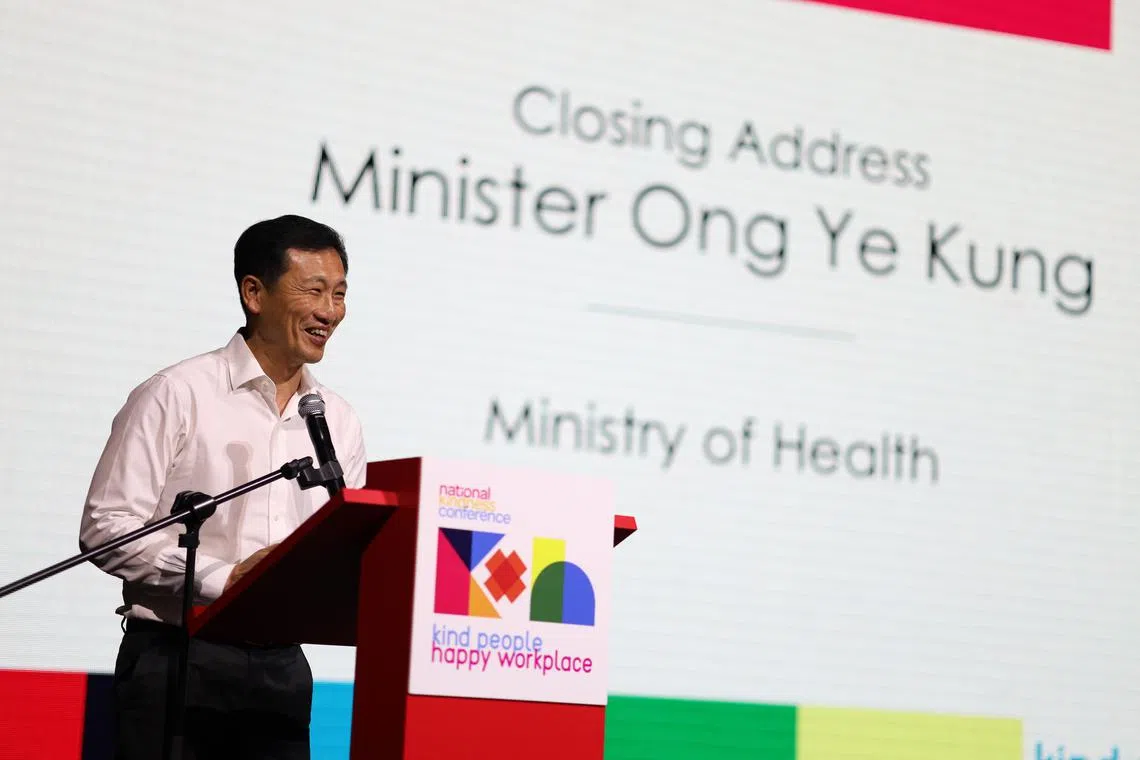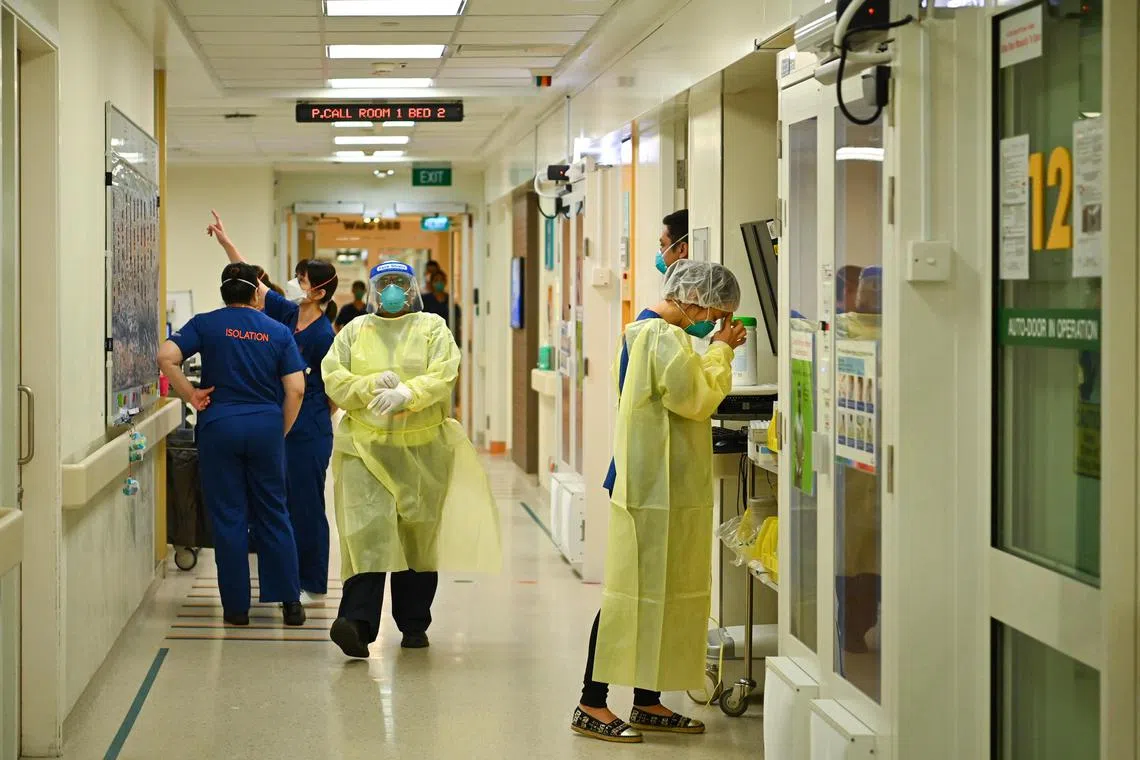Govt’s focus on policies encouraging kindness: Ong Ye Kung
Sign up now: Get ST's newsletters delivered to your inbox

It is easier for the Government to clamp down on specific unkind acts that harm others than it is to “mandate kindness”, said Health Minister Ong Ye Kung.
PHOTO: SINGAPORE KINDNESS MOVEMENT
Follow topic:
SINGAPORE – During the Covid-19 crisis, Singaporeans banded together and ensured the nation came out on the other side.
Speaking at the close of the first National Kindness Conference since 2012 on Tuesday at Capitol Theatre, Health Minister Ong Ye Kung recalled: “We were under so much pressure, but throughout the entire healthcare system, there was a lot of positive energy.
“Notwithstanding the urgent sense of crisis, everyone had everyone’s back. And because of that, we were able to get out of the crisis as a country with the cooperation of everyone.”
Mr Ong said it is important Singaporeans keep this positive energy involving kindness going.
“Kindness must start with everyone. It starts with you thinking about what you can do for others,” he noted.
“For the Government, we can have policies that bring out kindness in people. In the past, it had mostly been about proscribing what you could not do, for example, do not spit, do not litter, or you will be fined.
“However, we should focus on policies encouraging kind acts.”
He cited three examples of government policies with a significant impact in encouraging kindness.
The first was the National Environment Agency’s tray-return policy that kicked off in June 2021.
“It was common to hear some people expressing concern that cleaner aunties and uncles may lose their jobs.”
However, Mr Ong pointed out, returning the trays and clearing the table of litter are also a form of kindness
He also cited Singapore’s “digital-first” approach to payment, pointing out that it is not “digital-only”
“It is a kind policy because it takes into account that there are Singaporeans who may not be digitally literate or proficient yet to embrace cashless payment totally,” he said.
Providing a non-digital avenue for these Singaporeans will not impose a major cost or efficiency burden on the system, and taking a more inclusive and understanding approach is more likely to bring about a greater acceptance of cashless payment.
“It may be counter-intuitive, but it is a kind approach,” he said.
Mr Ong’s final example was the Ministry of Health’s recently announced zero-tolerance policy against abuse and harassment of healthcare workers.
The new policy will come into force in the second half of this year, to ameliorate rising abuse and harassment of healthcare workers, the majority of whom have experienced or witnessed such instances.
“Since the new policy was announced last month, we have received mostly supportive feedback. It confirms our belief that the vast majority of the people we serve are appreciative of and respectful to healthcare workers,” said the Health Minister.

MOH’s recent zero-tolerance policy against abuse of healthcare workers is one example of a Government policy to encourage kindness, said Mr Ong.
PHOTO: ST FILE
Mr Ong noted that anxiety levels can be high in a hospital environment, and people can lose their cool and disagreements may arise.
Members of the public have feedback channels to report healthcare workers who act unprofessionally, and such feedback will be looked into seriously, he added.
“When caring for a patient, healthcare workers and the patients’ loved ones are always on the same side, even while expectations of the type and standard of care may differ occasionally.”
Abuse adds significant stress and emotional burden to healthcare workers, and negatively impacts patients’ rest and recovery, he said.
“It also affects (workers’) ability to carry out their duties effectively and is unfair to the great majority who are appreciative and respectful to healthcare workers.”
Mr Ong noted that many Singaporeans provide a service to others at some point or other in life or at work, be it as a public healthcare worker, security guard, waiter, salesperson, public service officer or MP.
“We are all in the same boat and and have experienced abuse at some point of time. All the more, we can empathise with each other, and collectively stand up against the minority who may be abusive.
“Together we can do much better and make Singapore a much kinder and more pleasant place to live in. With that positive energy, we can achieve so much more.”

